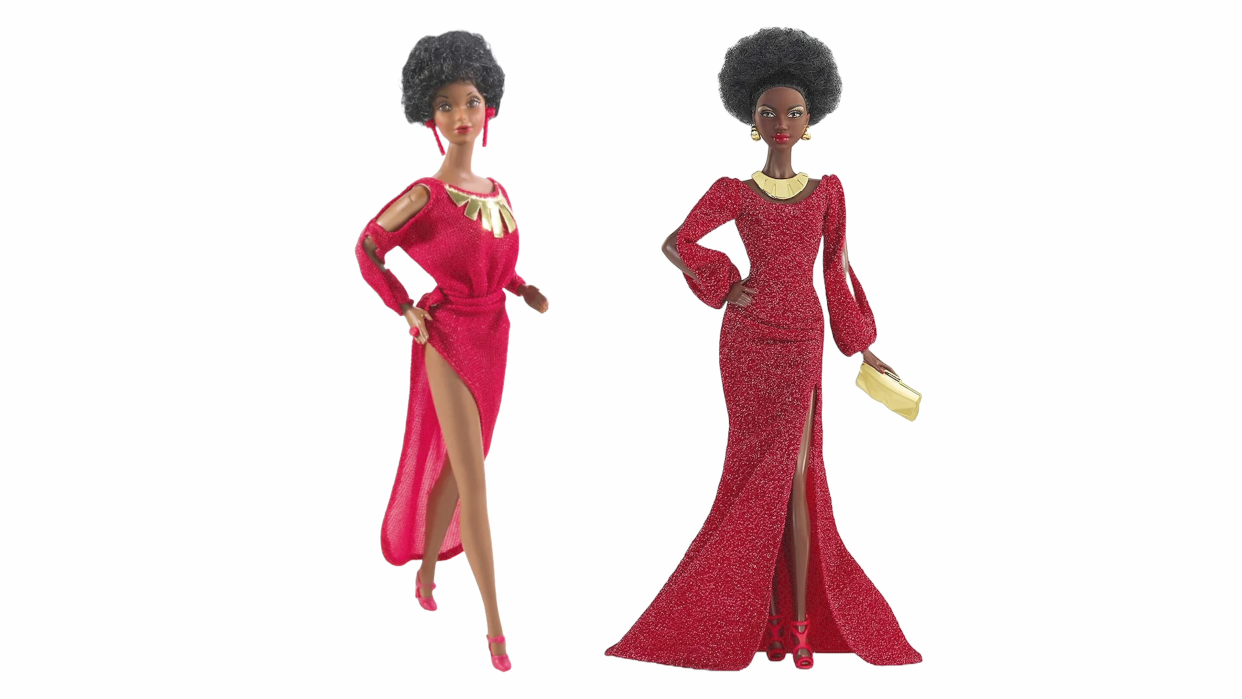‘Black Barbie’ Filmmaker Hopes To See An Uptick In Black Designers At Mattel As A Result Of Her Documentary

If filmmaker Lagueria Davis had never moved in with her aunt, Beulah Mae Mitchell, in 2011, we would not be reclaiming the history of the Black Barbie doll through the new Netflix film, Black Barbie: A Documentary, which explores the rich sentiment behind the debut of the toy.
Davis explained to Blavity’s Shadow and Act, “It really all started with a conversation with my aunt, Aunt Beulah Mae, when I moved here and stayed with her in 2011. We wanted to get to know each other a little better. She asked, ‘Do you drink?’ I replied, ‘Yeah.’ She said, ‘Well, I don’t, but I have Manischewitz. This is all I’ve got.’ So she poured us some Manischewitz, put out some snacks, and sat down to tell me her story.”
In 1959, Beulah Mae Mitchell became Mattel’s first Black woman hired to work directly on the Barbie line, marking a turning point in the toy manufacturer’s history. Little did anyone know at the time, this moment would lead to a toy that changed the lives of Black children for generations to come.
Mitchell, who began working for the toy company in 1955, had no idea of the integral role she would play in bringing Black Barbie to life. She encouraged Barbie creator Ruth Handler to consider launching a toy that would be more inclusive to little girls who looked like her.
By tracing the origins of the first Black Barbie doll through a remarkable history lesson shared by her aunt, Davis said she could relate to the doll for the first time.
“I feel like it was so important to tell as much of Black Barbie’s story as we could,” Davis said. “That meant bringing in Kitty [Black Perkins] and understanding what my aunt’s role meant for Kitty to be able to come in. Kitty, being the chief designer at that time, had the visibility to inspire Stacey [McBride Irby].”
Her hope through this documentary is that by sharing the individual stories of three Black women who have personal connections to Black Barbie, including her aunt Beulah, the woman responsible for designing the first Black Barbie, Kitty Black Perkins, and former Mattel project designer and creator of the company’s So In Style line of Black Barbie dolls, Stacey McBride Irby, the toy’s place in the company’s history will be amplified in a way that has never been done before.
“Hopefully, with the documentary, we will see an uptick in Black women designers,” Davis said. “That would be an amazing outcome, but understanding where we are, the broken pipeline, and knowing there isn’t another Kitty, Stacey, my aunt, or Stephen Sumner, who’s also in the film, is crucial.”
She added, “There’s not a Black designer at the table. Knowing that is half the battle, and trying to do something to remedy that by showing what they were able to create will hopefully inspire Mattel to see the importance of having such voices in the space.”
Black Barbie: A Documentary is now streaming on Netflix.

